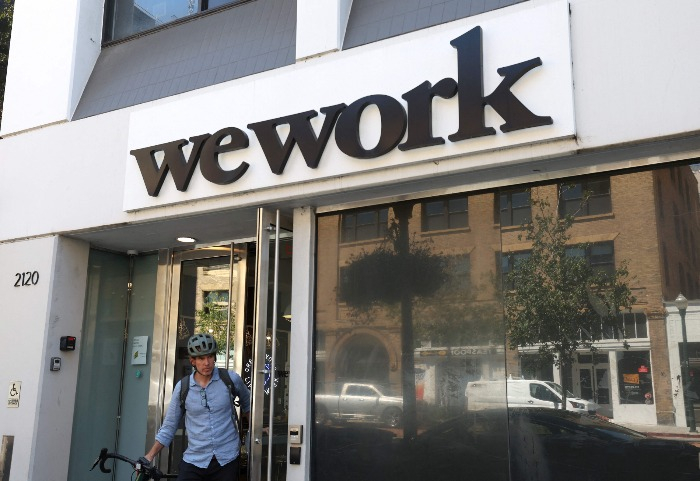WeWork vs Starbucks as workspace in South Korea
The co-working space provider failed to catch on to the change in the perception of a workspace
By Nov 14, 2023 (Gmt+09:00)
LG Chem to sell water filter business to Glenwood PE for $692 million


Kyobo Life poised to buy Japan’s SBI Group-owned savings bank


KT&G eyes overseas M&A after rejecting activist fund's offer


StockX in merger talks with Naver’s online reseller Kream


Mirae Asset to be named Korea Post’s core real estate fund operator



In 2019, WeWork’s business model underwent a reality check.
Its application for an initial public offering the same year was met with investor skepticism about its business sustainability, after its filing revealed worse-than-expected financial conditions at the startup.
Once valued at $47 billion, the valuation of the then nine-year-old startup plummeted to $15 billion, pushing the company to postpone its listing until its stock market debut in 2021 via a special purpose company.
A lavish retirement package for its co-founder and then-Chief Executive Adam Neumann, who stepped down as CEO after the foiled IPO attempt, set off alarm bells with its corporate governance and accounting transparency.
Some investors doubted whether it put a sufficient amount of money into its business after raising a vast amount of investor funds.
CHANGE IN PERCEPTION OF WORKSPACE
Then it faced a second reality check during the COVID-19 pandemic.
The spread of remote working in the aftermath of the COVID-19 outbreak has dampened demand for offices, challenging WeWork’s core business: renting space and subletting it as a shared office.

Neumann argued WeWork would allow different companies to come together to form a mutually beneficial network and it could bear fixed costs such as postage and cleaning through rental income.
However, the pandemic has changed the perception of workspace among millennials and Gen Z, or those born between the 1980s and the early 2000s.
They no longer want to work at fancy office spaces in high-rise buildings and instead prefer to work at spacious coffee houses.
SPACE MARKETING
Starbucks didn’t miss out on such a trend. It has aggressively opened a series of spacious stores during the pandemic, introducing so-called “space marketing.”
"Our strategy is to create a space where you can visit and enjoy the place as a destination rather than just drop in,” said a Starbucks official in August this year.

There are a few other companies that successfully changed their core business models for survival. Sony, once the strongest electronics company, achieved its highest-ever operating profit in fiscal 2022, led by digital content such as games, movies, and music.
Netflix, a former DVD rental company, has grown into the world's No. 1 over-the-top

From Central Park to Lower Manhattan along the 5th and 6th Avenues, you can still see the WeWork logo hanging on skyscrapers.
That gives an idea of how much money WeWork might have spent to rent the space before filing for Chapter 11 bankruptcy on Nov. 6.
Write to Shin-Young Park at nyusos@hankyung.com
Yeonhee Kim edited this article.
-
 Food & BeverageStarbucks' space marketing shines in Korea with 'The' stores
Food & BeverageStarbucks' space marketing shines in Korea with 'The' storesAug 25, 2023 (Gmt+09:00)
2 Min read


